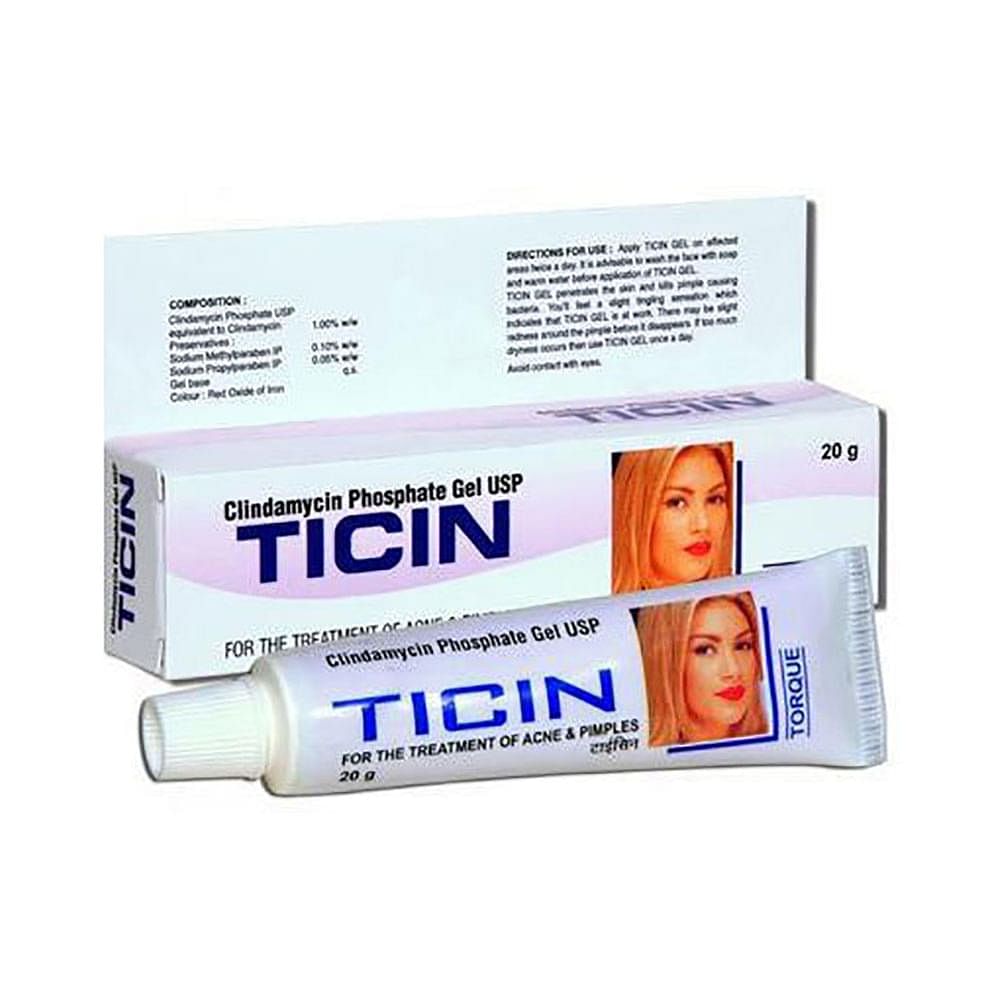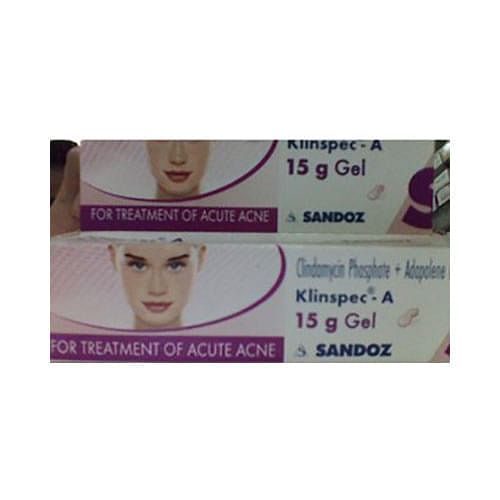
Clidis Cream
Manufacturer
Cosmederma Remedies
Salt Composition
Clindamycin (1% w/w)
Key Information
Short Description
Clidis Cream is an antibiotic that fights bacteria, used to treat acne, which appears as spots or pimples on your face, chest, or back.
Dosage Form
Cream
Introduction
Clidis Cream is an antibiotic that fights bacteria. It is used to treat acne, which appears as spots or pimples on your face, chest, or back. This medicine works by attacking the bacteria that cause these pimples.
Directions for Use
This medicine is for external use only. Use it in the dose and duration as advised by your doctor. Check the label for directions before use. Clean and dry the affected area and apply the cream. Wash your hands after applying unless hands are the affected area.
Safety Information
Side Effects
No common side effects listed.
Alcohol Warning
No interaction found/established
Breastfeeding Warning
Clidis Cream is probably unsafe to use during breastfeeding. Limited human data suggests that the drug may pass into the breastmilk and harm the baby.
Pregnancy Warning
Clidis Cream is generally considered safe to use during pregnancy. Animal studies have shown low or no adverse effects to the developing baby; however, there are limited human studies.
How it works
Clidis Cream is an antibiotic. It works by preventing synthesis of essential proteins required by bacteria to carry out vital functions. Thus, it stops the bacteria from growing and prevents the infection from spreading.
Quick Tips
You have been prescribed Clidis Cream for the treatment of acne. You may have to use it for a long time before your acne starts to improve. Be patient and keep using it every day. Wash your skin with a mild cleanser and pat it dry before applying Clidis Cream. Apply it as a thin layer onto clean, dry, unbroken skin affected by acne. It may cause minor burning, stinging, or irritation when applied. Inform your doctor if this does not go away.
Related Medicines

Acneris Cream

Clinizex Cream

Cleen See Cream

Ticin Cream

Clintop 1% Cream

Clearacne 1% Cream

Klinspec Cream

Magclin 1% Cream
Frequently asked questions
How to use Clidis Cream?
Before applying Clidis Cream, cleanse and dry the affected area thoroughly. Gently massage it into the skin. Avoid contact with your eyes or mouth. If Clidis Cream gets into your eyes, flush them with plenty of water and consult your doctor if irritation occurs.
How long should I use Clidis Cream?
Use Clidis Cream for the duration prescribed by your healthcare provider. Treatment may require several months to achieve complete acne clearance. Even initial benefits may manifest in a few weeks, followed by gradual but noticeable improvement. Usually, maximum usage of Clidis Cream is recommended for up to 12 weeks, and you may need multiple tubes during each treatment course.
What does Clidis Cream do for acne?
Clidis Cream treats and prevents acne by inhibiting the growth of Propionibacterium acnes bacteria, a primary cause of acne. Acne is a prevalent skin condition triggered by the increased production of oil in skin glands during puberty in response to hormones. This excess oil can clog pores (blackheads), allowing bacteria to invade, leading to red inflamed spots filled with pus, known as acne.
Is Clidis Cream effective?
Clidis Cream demonstrates effectiveness when used at the prescribed dosage and duration provided by your doctor. Do not discontinue treatment even if you notice an improvement in your condition. Stopping use prematurely may lead to a resurgence or worsening of symptoms.
Can Clidis Cream cause skin rash?
Common side effects of Clidis Cream include skin irritation, swollen, pale red bumps, and dryness. Rarely, a scaly skin rash might occur with Clidis Cream usage. If you experience these symptoms, consult your doctor immediately.
What precautions do I need to take while using Clidis Cream?
Avoid contact of Clidis Cream with eyes and mouth. Flush your eyes with water if Clidis Cream comes into contact with them and contact your doctor for advice. Do not use Clidis Cream if you have allergies to it or any of its components. If you experience allergic reactions while using Clidis Cream for the first time, consult your doctor. Inform your doctor about any other medications you are currently taking to ensure no potential interactions occur. Do not cover the treated area with a bandage; this may enhance absorption and increase side effects. Avoid exceeding recommended usage quantities to minimize side effects.
Is Clidis Cream effective?
Clidis Cream demonstrates effectiveness when used at the prescribed dosage and duration provided by your doctor. Do not discontinue treatment even if you notice an improvement in your condition. Stopping use prematurely may lead to a resurgence or worsening of symptoms.


